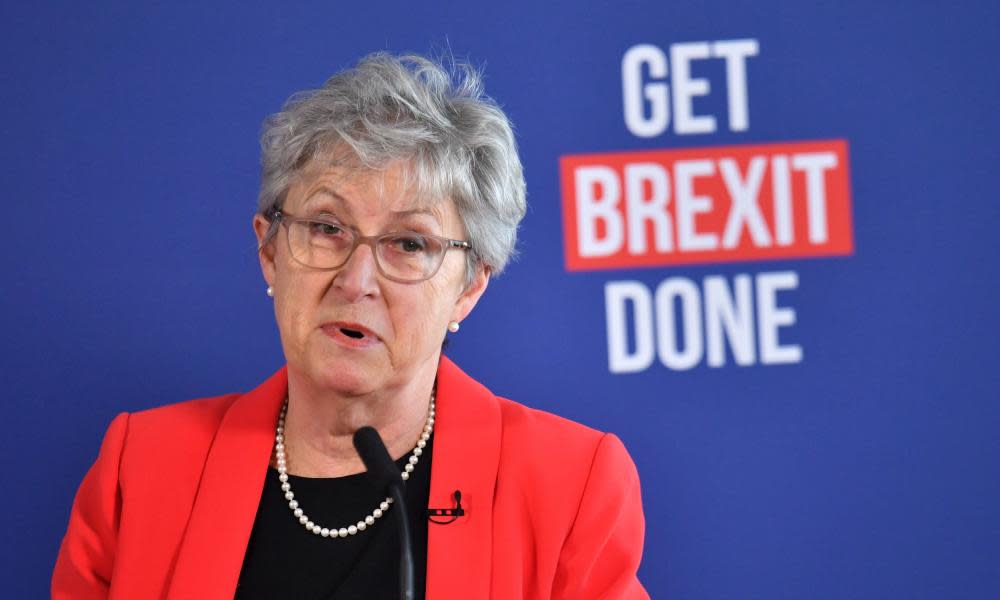Boris Johnson picks Gisela Stuart as civil service commissioner

Critics say political figure who chaired Vote Leave should not head body ensuring impartiality of civil service
Boris Johnson has picked the prominent Brexit campaigner Gisela Stuart for a senior role regulating appointments to the civil service – a “deeply inappropriate” decision given her previous political career, critics say.
The former Vote Leave campaign chair is set to become the new first civil servant commissioner, leading a team who will scrutinise selections for top jobs in Whitehall.
While her appointment is conditional on scrutiny by the public administration and constitutional affairs committee, her choice as the preferred candidate will raise eyebrows given that Stuart urged people to vote for Johnson in 2019.
The former Labour MP – who is now a crossbench peer – suggested at the last general election that those who did not traditionally back the Conservatives should do so to “deliver Brexit”.
Two weeks before the end of the campaign, Stuart appeared at a press conference alongside the prime minister and said: “I urge other leave voters across the country to join me in voting for Brexit once more by voting for Boris Johnson on December 12, so that we can finish the job we have started, so that we can get Brexit done, and we can take back control.”
Stuart will probably have a powerful say on appointments for departments’ permanent secretaries and other senior civil service jobs.
Fleur Anderson, the shadow minister for the Cabinet Office, said Stuart had had an “admirable career” but, given she is a former frontline politician, “there are huge questions marks over whether she can uphold the independence and integrity of this role”.
Anderson called it “a deeply inappropriate appointment” and, referring to the review of government staff parties, she added: “On a day when junior civil servants are being hung out to dry on the actions of ministers, the neutrality of this position is more important than ever.”
Alex Thomas, of the Institute for Government, said: “Asking a political figure, known to be a close ally of current senior ministers, to lead the very body that exists to ensure that the civil service can serve governments of any party, is a mistake.
“It fails to recognise that perceived – as well as actual – impartiality is necessary for credibility in this role, will make civil servants less likely to speak honestly to ministers, raises concerns about how the impartiality principle in the civil service code is to be overseen, and encourages a creeping politicisation of the civil service.”
Government sources admitted Lady Stuart’s selection could prove controversial, given the attention that public appointments processes have attracted. Recently the selection procedure for a new chair of the media regulator Ofcom was re-run because Johnson’s favoured candidate, the former Daily Mail editor Paul Dacre, was deemed unsuitable.
Stuart was already serving as a lead non-executive board member for the Cabinet Office, and previously served as a health minister from 1999-2001 in Tony Blair’s Labour government.
Defending her selection, Steve Barclay, the Cabinet Office minister, said she had “all the attributes, experience and independence of judgment needed to lead the Civil Service Commission highly effectively.”
Stuart said it was a “great honour” to offered the role. “Building on the important work done by my predecessors, I am committed to maintain the excellence and impartiality of our civil service,” she said.
Stuart will replace the former first civil servant commissioner, Ian Watmore. Before entering politics, she worked in publishing and bookselling in Germany and the Netherlands.

 Yahoo News
Yahoo News 
